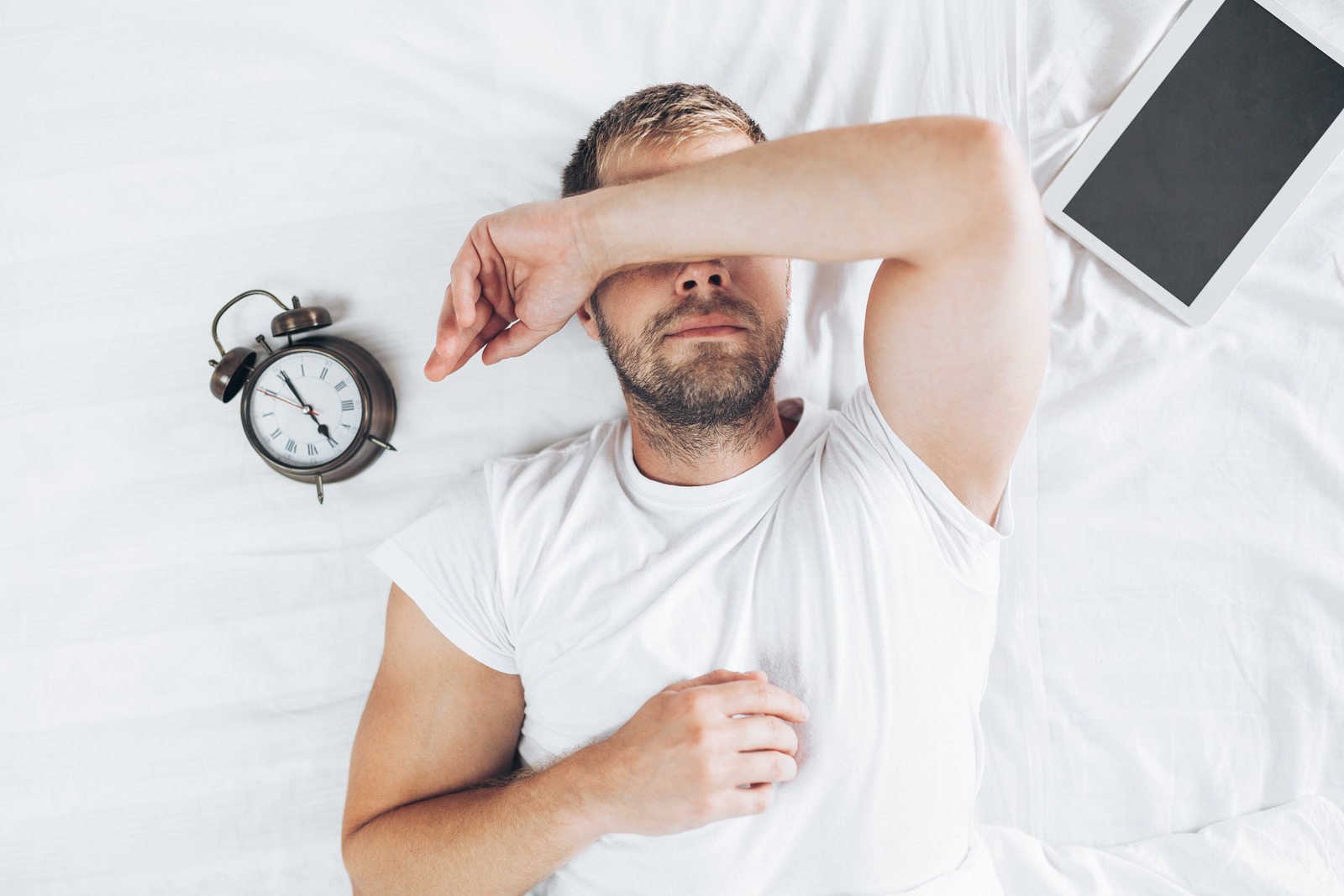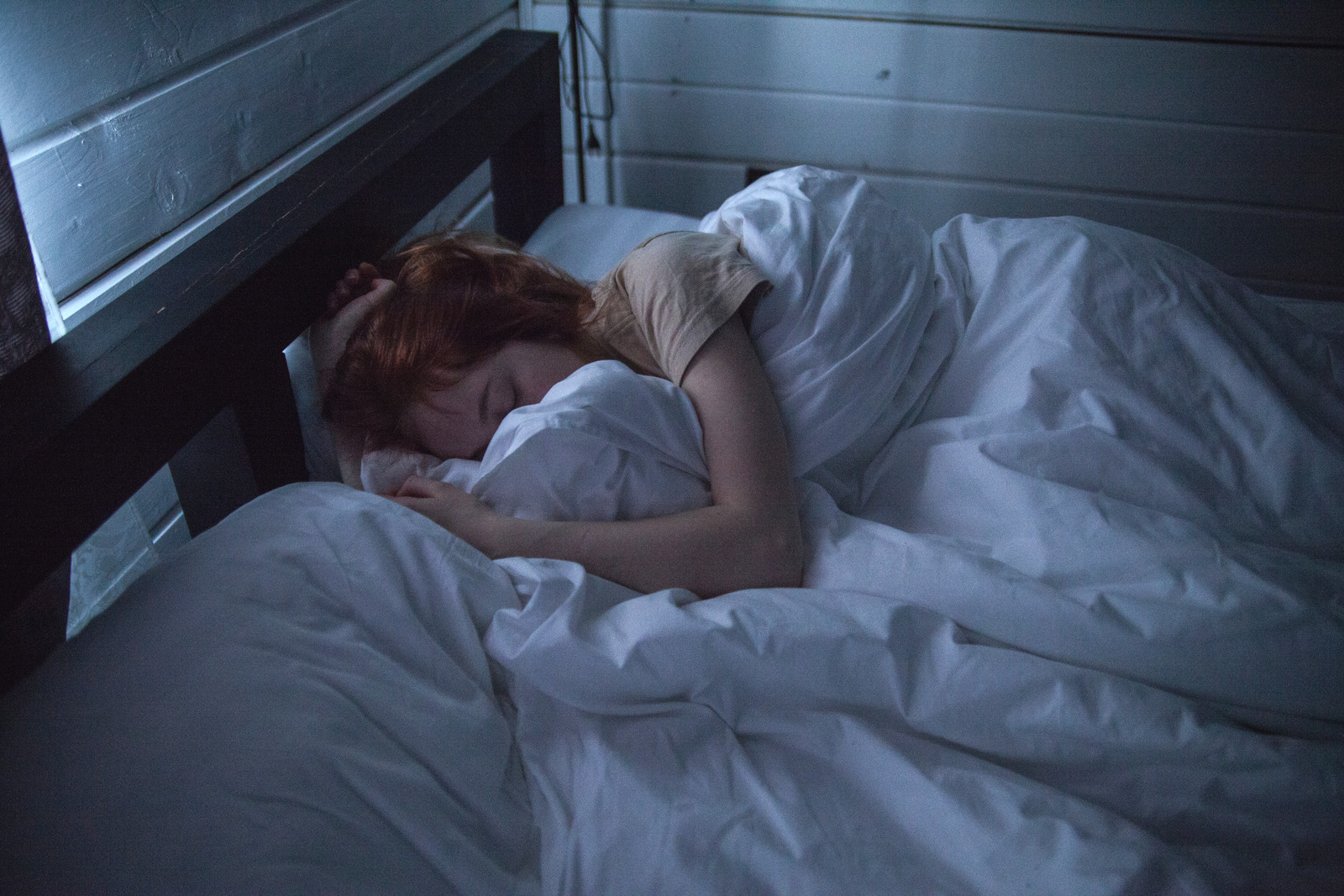When you think of a healthy lifestyle, you usually think of exercise and nutrition. However, getting a good night’s rest is equally as important to our physical and mental health as a good diet and exercise. In fact, studies show that without proper sleep, our bodies will suffer from negative effects on our hormones, weight, brain function, and even exercise performance. With that being said, sometimes getting good sleep is easier said than done. Nowadays, working Americans get significantly less sleep than they have in decades past.
So, what can you do to sleep better? We’re breaking down some of the most effective ways to improve your sleep quality and give your body the rest it needs to stay healthy.
-jpg.jpeg)
1. Pay Attention to What (And When) You Eat
Have you ever gone to bed on an empty stomach? How about going to sleep when you’re uncomfortably full? If so, you’ve probably noticed that eating too much or too little before bed makes you feel too distracted to fall asleep. Experts have found that eating healthy carbs with protein 4 hours before bedtime can help you fall asleep faster. You want to avoid foods that are too high in calorie (especially saturated fats) but filling enough to help you sleep better. Remember, insomnia can be made worse on an empty stomach.Some good examples of foods that help you sleep better are:
- Lean chicken
- Fresh fruits
- Quinoa
- Sweet potatoes
- Kidney beans
- Chickpeas
- Oats
- Whole grain crackers
2. Stress Management Improves Your Ability to Fall Sleep
This one is a given. When you find yourself lying in bed with to-do lists and worries about bills zooming through your head, it becomes extremely hard to fall asleep. And to be honest, stress management can be pretty difficult for lots of people, especially those who are prone to anxiety disorders. Stress activates the body’s fight-or-flight response, making our bodies unable to relax long enough to help us fall asleep.
If you find yourself suffering from this kind of stress-induced insomnia, here are a few things you can do to relax and finally catch up on your sleep:
- Listen to guided meditation before bed.
- Practice deep breathing exercises.
- Talk about your worries with a trusted friend or family member. For many people, simply talking about their stresses can help them de-stress.
- Put down your phone before bed. Checking emails and social media notifications before sleep can trigger feelings of stress.
- Light exercise later in the day can release mood-boosting endorphins and lower your blood pressure before you lie down to rest.
Most importantly reach out to your doctor or a mental health professional if you find that your stress levels are overwhelming.
-jpg.jpeg)
3. Avoid Caffeine and Nicotine
Many people use caffeine and nicotine to keep them energized throughout the day. Both substances are stimulants that many people find helps them concentrate for short periods of time throughout the day. However, the stimulating effects of caffeine and nicotine can often take hours to wear off and can wreak havoc on your sleep cycle (especially when consumed in the afternoon).
If you find yourself needing an energizing pick-me-up to get you through the day, there are healthier options that won’t negatively affects your quality of sleep. Eating high-fiber foods for breakfast, drinking plenty of water throughout the day, snacking on proteins, and making sure your body is full of the right nutrients can all give you a natural dose of energy when you’re feeling fatigued. And if you’re looking for an extra quick (and healthy) fix, Liquivida Lounge offers a hydrating vitamin drip that is perfect for getting energized, hydrated, and full of vitamins all in one go.
4. Tryptophan and Melatonin: The Ultimate Sleep-Inducers
Most people have heard of melatonin, but not everyone has heard of tryptophan. Not only are both crucial to getting a good night’s rest, but they’re also related to each other.
Tryptophan is an amino acid found in foods that contain protein (famously found in those Thanksgiving turkeys that make us feel sleepy). It’s not something our bodies produce themselves, so we need to obtain it in our food. When we consume tryptophan, it gets converted into molecules that make melatonin. And melatonin is a hormone that helps to regulate our sleep-wake cycles. If you’re looking to catch a few extra Z’s, eating these tryptophan-rich foods throughout the day can do wonders for your sleep schedule:
- Lean chicken and turkey.
- Cheese
- Tuna
- Whole wheat bread
- Oats
- Nuts and seeds
- Bananas
- Apples
- Milk
5. Turn Your Bedroom into a Den of Relaxation
Sometimes one of the biggest reasons why we’re unable to get good quality sleep is because our bedrooms are too distracting. Your bedroom should be a place where you go to rest, but we often treat it like our second living room.
If you want to improve the quality of your sleep, it’s important that you make sure your room is comfortable and distraction-free. Here are a few changes you can make to your bedroom to make it the cozy hideaway you need to catch up on your sleep:
- Reduce your screen time before bed. Ever notice that scrolling through your social media feed before bed keeps you awake at night? The reason for this is that our screens emit blue light. Blue light prevents the body from secreting the melatonin it needs to put us to sleep. If you want to get better sleep, start by turning off the TV, putting away your laptop, and setting your phone down.
- Make your room darker. Light plays the biggest role in regulating our body’s internal clock. The brighter your bedroom is, the more likely your brain will signal that you should stay awake. Dark rooms also prevent distractions and make you less likely to wake up throughout the night. Try using an eye mask, room-darkening shades, or black-out curtains to make your room darker.
- Turn your room into a quiet space. Once again, avoiding distractions plays a big role in falling asleep. Some people like to fall asleep to the sound of a TV, but the more noise you’re exposed to, the less likely you’ll get quality sleep. If you live next to noisy neighbors, noise cancelling headphones might make a big difference in improving your sleep.
The Bottom Line
Good sleep is crucial to staying healthy. If you find that you're having trouble sleeping even after making the necessary lifestyle choices, contact your doctor or a sleep specialist. Your sleep may be affected by an underlying condition and may need additional treatment.











